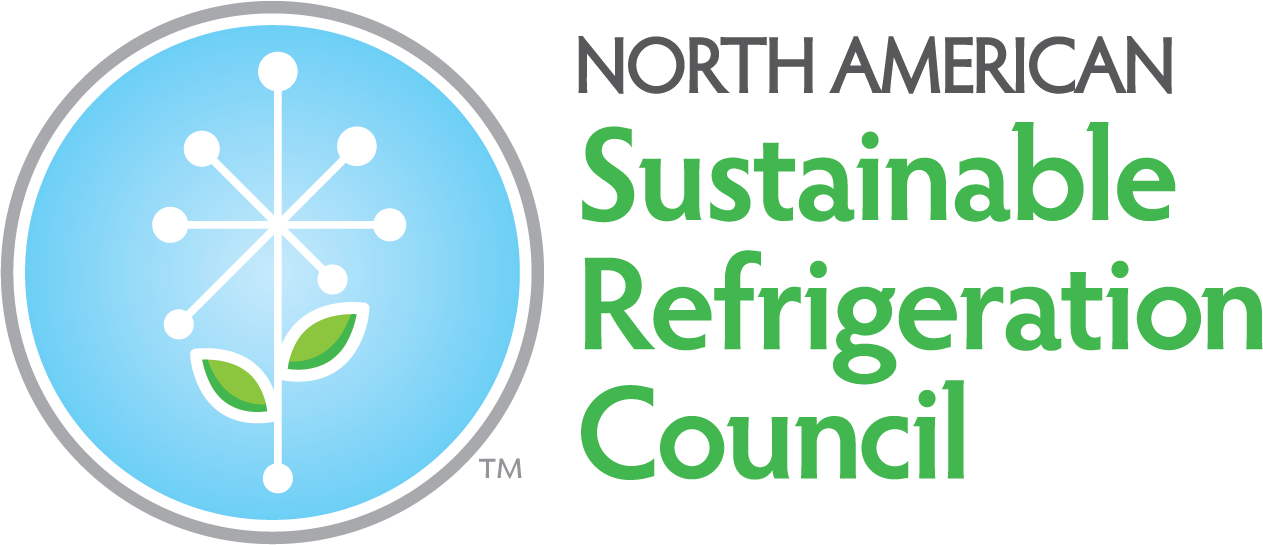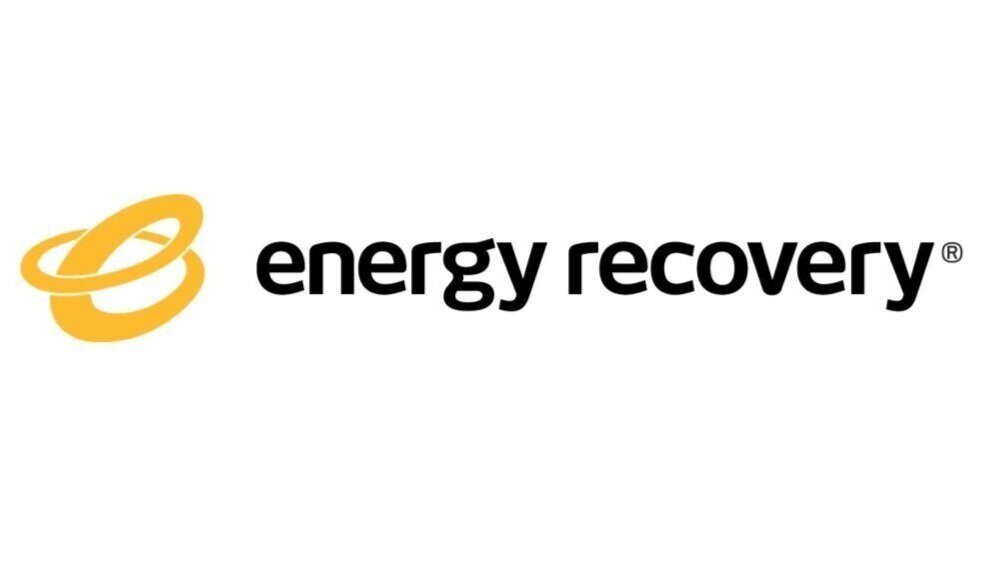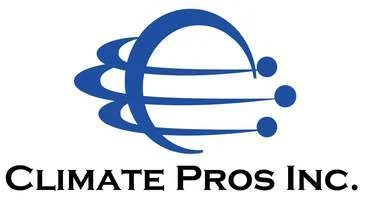|
|||||||||||||||||||||||||||||||||||||||||||||||||||||||
|
|||||||||||||||||||||||||||||||||||||||||||||||||||||||
|
Energy Recovery Joins NASRC, Introducing Energy-Saving Innovations for CO2 Systems
San Leandro, California — Energy Recovery, an energy recovery device manufacturer of technologies that solve complex challenges for industrial fluid-flow markets worldwide, has joined the North American Sustainable Refrigeration Council (NASRC) at the silver level.
NASRC is an action-oriented 501c3 nonprofit working in partnership with the supermarket industry to create a climate-friendly future for refrigeration by eliminating the barriers to natural refrigerant adoption in supermarkets. Natural refrigerants - including ammonia, hydrocarbons, and carbon dioxide (CO2) - have zero or near-zero global warming potential (GWP), making them a climate-friendly alternative to hydrofluorocarbon (HFC) refrigerants.
HFCs are super-polluting greenhouse gases growing faster than any other greenhouse gas on the planet, and phasing them out has been identified as one of the most impactful climate solutions globally. As a result, supermarkets are facing increasing regulatory pressures and new corporate sustainability commitments to transition away from HFCs. Though natural refrigerants are the most climate-friendly solution, unique market challenges such as upfront cost premiums, service readiness, technology gaps, and uncertainty around energy performance have prevented their widescale adoption.
Energy performance is particularly important to achieving the lowest possible carbon footprint in supermarkets, as they represent the most energy-intensive type of commercial building, and their refrigeration systems are usually the largest source of energy use. CO2-based refrigeration systems have faced particular scrutiny for energy performance challenges in warm ambient climates. Though CO2 often performs well as a refrigerant in cool ambient climates, it has been shown to be less energy efficient in warm ambient climates without additional energy-saving design features.
Energy Recovery, which focuses on designing and manufacturing solutions that make industrial processes more efficient and sustainable, is working to address that challenge. The company’s newest pressure exchanger device, the PX G1300, allows CO2-based refrigeration systems to operate more efficiently in all ambient temperatures. It works by harvesting pressure energy to reduce compressor work and lessen power requirements, in turn increasing the efficiency of the system and contributing to a lower overall carbon footprint.
“Energy Recovery has been making industrial processes more sustainable and affordable for nearly three decades, and we’re excited that our innovative technology can do the same for the CO2 refrigeration industry,” said Kuo-Chiang (K-C) Chen, vice president of engineering and new product launch, Energy Recovery. “Our PX not only enables the use of natural refrigerants that have a significantly lower global warming potential, but also reduces electricity use of the entire system. We’ve found a partner with a shared goal in the NASRC, and we look forward to working together to future-proof CO2 refrigeration.”
The company has now joined NASRC’s network of over 140 stakeholders from across the refrigeration industry who are all contributing to NASRC’s work to advance natural refrigerants.
“We welcome Energy Recovery to our growing network and look forward to leveraging their expertise,” said Danielle Wright, executive director of NASRC. “Optimizing energy performance is critical to the future success of natural refrigerants and to achieving the maximum emissions reduction potential in the supermarket sector.”
NASRC’s membership network represents more than 38,000 US food retail locations and stakeholders from virtually every sector of the commercial refrigeration industry, including service contractors, manufacturers and suppliers, consultants, engineering firms, trade associations, distributors, and nonprofits.
Register for NASRC’s Sustainable Refrigeration Summit to access a free, on-demand presentation of Energy Recovery’s PX G1300 device. More information about Energy Recovery can be found here: https://energyrecovery.com/refrigeration/.
Dalkia Energy Solutions Expands Support for NASRC, Contributing to Reduced Carbon Footprint
BEVERLY, Mass. – Dalkia Energy Solutions, EDF Group recently increased its financial support level for the North American Sustainable Refrigeration Council (NASRC). The NASRC is an action-oriented 501c3 nonprofit that brings together stakeholders from virtually every sector of the commercial refrigeration industry to advance natural refrigerants and create a climate-friendly future for supermarket refrigeration.
With decades of work helping grocery chains across the US reduce their energy footprint, Dalkia has been a supporter of the NASRC since its founding in 2015. Dalkia’s increased level of NASRC support demonstrates a new level of commitment to driving adoption of these more sustainable refrigeration solutions.
Dalkia is the building energy services division of EDF Group, one of the largest utilities in the world. EDF Group is focused on advancing low-carbon energy to support both economic growth and climate solutions. Dalkia’s 2016 acquisition of Groom Energy Solutions marked its introduction to the US market, bringing reliable and cost-effective energy management solutions to both commercial and industrial customers.
“Dalkia’s projects globally have contributed to the prevention of roughly 4.2 million tons of CO2 of emissions, the equivalent of taking two million cars off the road,” said Jon Guerster, CEO of Dalkia Energy Solutions. “And the numbers for 2019 will be even greater.”
He furthered, “we work closely with each and every customer to develop a customized initiative roadmap to unlock energy savings and maximize efficiency. It’s part of our mission and at the heart of all we do.”
Dalkia’s commitment to energy efficiency is especially important in supermarkets, which are more electricity-intensive than any other commercial building type in the US.
To reduce the overall carbon footprint of supermarket refrigeration, both the energy use and the global warming potential (GWP) of the refrigerants used must be considered. The climate impact of a supermarket’s refrigeration system can be evaluated using a measure called the Total Equivalent Warming Impact—the sum of the “indirect” emissions resulting from energy use and the “direct” emissions of refrigerants. For this reason, energy efficiency has become a growing part of NASRC’s strategy to create a climate-friendly future for supermarket refrigeration, as was demonstrated at their recent Low-GWP & Energy Efficiency Expo.
“A growing number of retailers are looking for solutions that offer both low-GWP and energy efficiency benefits. Stakeholders from both energy management and supermarket refrigeration need a seat at the table to advance solutions for supermarkets, and we are glad to see Dalkia position themselves at the forefront of this effort.”
- Danielle Wright, executive director of the NASRC.
“We view the transition to natural refrigerants as a critical piece in the broader greenhouse gas emission reduction puzzle. The US is trailing Europe, where our affiliate Dalkia Froid Solutions has made a significant number of upgrades delivering commercial refrigeration using low-GWP refrigerants, about 150 installations per year with over 2,000 commercial and industrial sites in total under maintenance in Europe,” said Adin Hamilton, SVP of Dalkia Energy Solutions. “There is a great deal of ground to make up in the US, and our involvement with NASRC is a way to participate and contribute to the thought-leadership required to advance this cause. Dalkia is committed to helping customers meet emerging regulatory requirements and organizational carbon reduction goals.”
In addition to Dalkia Energy Solutions, NASRC is supported by a strong network of members, which represents over 24,000 supermarket locations in North America, major equipment manufacturers, service contractors, and other commercial refrigeration stakeholders. Together with their network, the NASRC is driving forward industry solutions that eliminate the barriers to a sustainable future for refrigeration.
More information about Dalkia Energy Solutions, EDF Group is available at: https://www.dalkiasolutions.com/
Climate Pros Inc. Joins the North American Sustainable Refrigeration Council as a Platinum Member
Glendale Heights, IL — Climate Pros has joined the North American Sustainable Refrigeration Council (NASRC), a nonprofit taking action to address the hurdles of natural refrigerants in supermarket applications. Climate Pros is a service contractor specializing in commercial refrigeration, among many other things, who has actively prepared their technicians to work with natural refrigerants. Their training center in Chicago, Climate Pros University, is being remodeled to include a CO2 rack System trainer along with a Howe CO2 Ice Flaker and some CO2 coils for supermarket refrigeration.
“Climate Pros is committed to pursuing environmentally friendly solutions with natural refrigerants to help reduce our customers carbon footprint and do our part to protect the climate for our future,” says Todd Ernest, Founder and CEO of Climate Pros. “We are excited to be joining the NASRC and look forward to working together to promote a more sustainable future.”
Natural refrigerants, including carbon dioxide, ammonia, and hydrocarbons, are considered “climate-friendly” alternatives to traditional fluorocarbon refrigerants, which have been identified as the fastest growing source of greenhouse gas emissions globally. Natural refrigerant technology also offers improved energy efficiency and often can save end-users money in the long run.
However, there are several unique challenges that are slowing the widespread adoption of natural refrigerants in the commercial sector, including availability of contractors and service technicians who are trained to service natural refrigerant-based systems and equipment. NASRC is spearheading efforts to overcome these barriers and ultimately create a more sustainable future for supermarket refrigeration. Climate Pros is sure to be an outstanding addition to their network of industry stakeholders.
“We are excited to welcome Climate Pros to our community,” says Danielle Wright, Executive Director of NASRC. “To position themselves as experts in this rapidly growing field, they need to have a seat at the table. They have made a choice to invest and will be at the forefront of this industry.”
NASRC and Climate Pros will work together on trainings, webinars, and other resources to benefit the supermarket community. In addition to service contractors, NASRC membership is composed of systems manufacturers, component manufacturers, consultants, engineering firms, trade associations, nonprofits, refrigerant distributors, and end-users. NASRC end-user membership encompasses nearly 14,000 supermarket locations who will benefit from Climate Pros and other NASRC members who are committed to overcoming the barriers of natural refrigerants.
About Climate Pros Inc.
Climate Pros Inc. is a full service commercial refrigeration, HVAC and construction company. What began as a company of two employees in 2006 has grown to service over 2,500 locations across ten U.S. states and counting. They provide services in commercial and industrial refrigeration, HVAC, and construction including: specialized installation, preventive maintenance, retrofitting, merchandising equipment, energy management, and lighting systems.
Climate Pros’ motto of “whatever it takes” has been proven time and again through their investment in natural refrigerant training for their technicians to ensure that they are prepared to service any equipment that comes their way.
About NASRC
The North American Sustainable Refrigeration Council is committed to advancing natural refrigerants in order to shape a more sustainable future for supermarket refrigeration. The organization focuses on natural refrigerants due to the unique set of market challenges that prevent the widespread adoption of natural refrigerants, such as codes and standards, lack of incentives programs, and availability of trained contractors and service technicians.
NASRC addresses these challenges through their progress groups, which each tackle a specific barrier. By taking action now, NASRC intends to open the door to a more sustainable future for supermarket refrigeration.
More information about Climate Pros is available at https://www.climateprosinc.com/.
Nearly 14,000 US Supermarket Locations are NASRC members
The North America Sustainable Refrigeration Council (NASRC) is excited to announce that our end-user membership now encompasses nearly 14,000 supermarkets.
“The growth of this organization has been amazing,” says Keilly Witman, owner of KW Refrigerant Management Strategy and former head of the EPA’s GreenChill Partnership. “Supermarket end-users are excited, because the NASRC gets things done. After years of all talk and no action about the hurdles that stand in the way of natural refrigerants in this industry, we finally have an organization that flips it around - it’s all about action.”
Most of the NASRC’s efforts focus on overcoming hurdles in three areas: service contractors and technicians, cost, and codes and standards.
The main programs that address hurdles related to service contractors and technicians focus on matching end-users with trained, experienced service contractors, ensuring clear communication between end-users and contractors who are working on their first all-natural refrigerant store, and collaborating with traditional service technician training organizations to ensure that technicians have the training they need to successfully install and manage an all-natural store.
The NASRC’s Natural Refrigerants Service Network, for instance, is an online tool that allows refrigeration service contractors to provide information about their natural refrigerant experience, along with the areas where they do business. End-users can join the online network and mine that data by geographic location and the natural refrigerant they are looking to use.
“The NASRC has just begun to make the most out of this tool; the ideas are endless,” says Bryan Beitler of Source Refrigeration. “Just the webinar the NASRC held for service technicians explaining the new requirements of the Section 608 amendments made it worthwhile to participate.”
The NASRC’s Return on Investment Progress Group is working to overcome the causes that tend to cause natural refrigerants to cost more than traditional centralized DX systems.
“There are big cost hurdles, like economies of scale, and there are smaller cost hurdles, like the lack of distributors that carry refrigerant-grade CO2,” says Mike Ellinger of Whole Foods Market. “The distributor problem sounds like its a small thing, but it costs money, and those costs build up over time, if you don’t have a solution for it.”
In response, the NASRC has begun cooperating with HARDI, the trade association for HVACR distributors, to bring traditional distributors into the natural refrigerant supply chain. According to NASRC Executive Director, Danielle Wright, the NASRC and HARDI will work to find a distributor in any area of the country where an end user wants to open a natural refrigerant store.
The codes and standards hurdle may be the toughest nut to crack, says Wright. “The organizations that write standards for supermarket refrigeration may not be aware of how urgent it is to get standards in place.” She cites the fact that California plans to require supermarkets to use refrigerants with a GWP less than 150 in just a few years.
“We are eager to work with ASHRAE and UL and discuss how to get these standards done, but they have few people on their committees who come from the refrigeration world, much less from the natural refrigerant world.”
“Is it any wonder that supermarket end-users are flocking to this organization,” says Witman, “given its track record in under three years of going to bat for supermarkets?”
“We don’t really have to recruit supermarket end-users,” reports Wright. “They come to us, because they’ve heard about the progress we’ve already made in all of the areas that have prevented them from moving forward with naturals in the past. No problem is too small, or too big, for us to tackle.”















